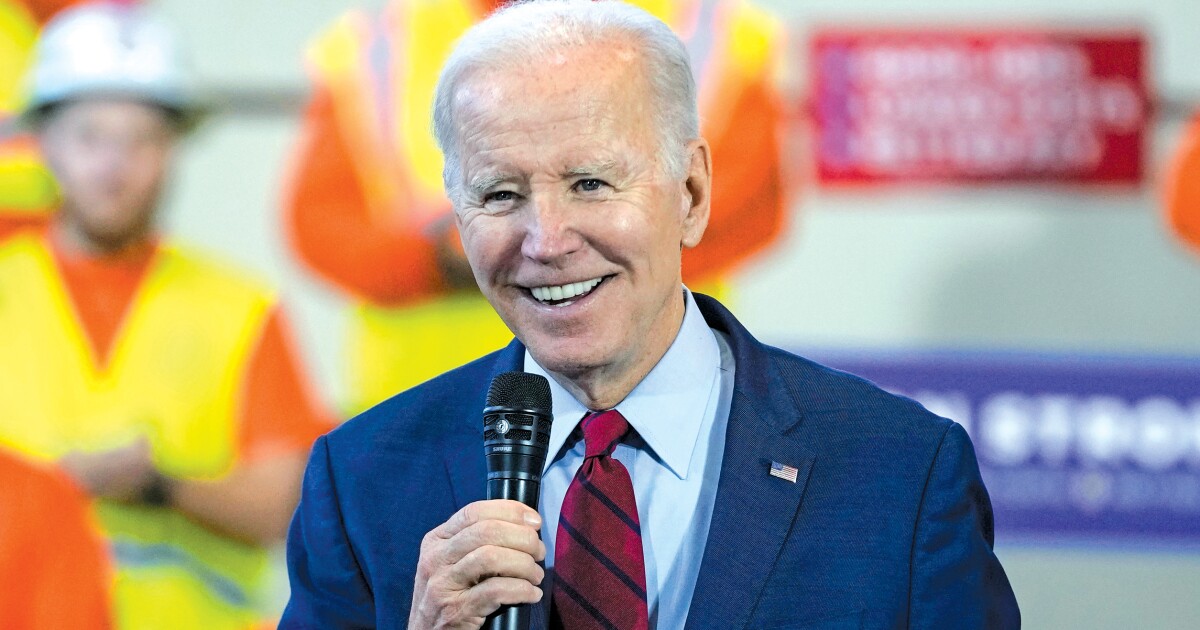

President Joe Biden finally announced he is running for a second term, calming Democrats who feared the hour was getting late to replace him if he decided otherwise.
While many polls show reticence about an 80-year-old presidential candidate — he will turn 82 shortly after the 2024 election and would be 86 if he completed a second four-year term — no other major candidate had entered the race. A Biden retirement would have set off a scramble.
WHY DEMOCRATS THINK BIDEN CAN WIN DESPITE MAJOR OBSTACLES TO HIS REELECTION
Biden’s timetable for a decision was later than most recent Democratic presidents’, but not by much. Barack Obama announced for a second term on April 4, 2011. Bill Clinton did the same on April 14, 1995. Biden chose April 25, four years to the day he launched his successful 2020 candidacy.
Former President Donald Trump waited until June 2019, and George W. Bush until mid-May 2003. Biden’s fellow Democrat Jimmy Carter waited all the way until Dec. 4, 1979, before sharing his reelection plans with the public.
Multiple Democratic strategists told the Washington Examiner Biden could have waited longer if he wanted. “As long as there was no competition, there was no reason he absolutely had to get into the race by a date certain,” said one. Another previously said there might be some utility to waiting until the identity of the Republican presidential nominee was known.
Nevertheless, Biden’s video pitch to “finish the job” ended a waiting game some of these Democratic insiders conceded was making party operatives uneasy. Biden kept delaying campaign announcements, even as he increasingly insisted that he planned to run and the actual declaration would be a mere formality.
The delays and Biden’s legendary indecisiveness sparked rumors that he would change his mind and end up not running after all. That speculation didn’t seem to be enticing anyone to look into being a Biden substitute, though Gov. Gavin Newsom’s (D-CA) name kept coming up as an alternative. Vice President Kamala Harris’s poll numbers are no better, and Transportation Secretary Pete Buttigieg’s tenure has been marred with problems.
“At some point, it would have been malpractice for him not to start alerting donors and other prospective candidates that he wasn’t going to run,” another Democratic strategist said.
An April declaration at least eliminates this chatter. And given Biden’s poll numbers, especially among younger Democrats, there is an advantage to keeping the primary field frozen. “I think an entire younger generation would stay home in droves in response to what that video is advancing as the administration’s pitch to the American people,” long-shot Democratic challenger Marianne Williamson said of Biden’s announcement.
There are some other advantages. Biden is entering one of the most consequential legislative fights of his presidency as he squares off with House Speaker Kevin McCarthy (R-CA) over the debt ceiling. The House has already passed McCarthy’s broad outline of extending the borrowing limit with accompanying spending cuts, while Biden remains adamant there will be no negotiations with the GOP. Now, Biden isn’t going into this debate as a lame-duck president.
A growing field of Republican presidential candidates, including Trump and possibly soon to be joined by Gov. Ron DeSantis (R-FL), is already out there seeking to define Biden ahead of 2024. While the basic contours of Biden’s anti-MAGA message were already known, if he was always going to run anyway, he might as well not give up the head start in defining them in return.
Biden’s allies believe the president has defied the polls and conventional wisdom multiple times before. His third presidential campaign seemed doomed after a distant fifth-place showing in the 2020 New Hampshire primary. He went on to win South Carolina, the nomination, and the White House.
CLICK HERE TO READ MORE IN THE WASHINGTON EXAMINER
The midterm elections were supposed to be a red wave for Republicans and a bloodbath for the Democrats. Biden insisted the party would hold on and was largely vindicated when Republicans scored much more limited wins than widely expected. It stands to reason, they say, that Biden could once again ride abortion, Trump, and the notion of a Trump-lookalike GOP to victory against long odds.
Competing with the Republicans and quieting lingering Democratic doubts far outweigh any advantages of whispering to super PACs that might have been conferred by continuing to wait. Now, the 2024 campaign begins in earnest.





